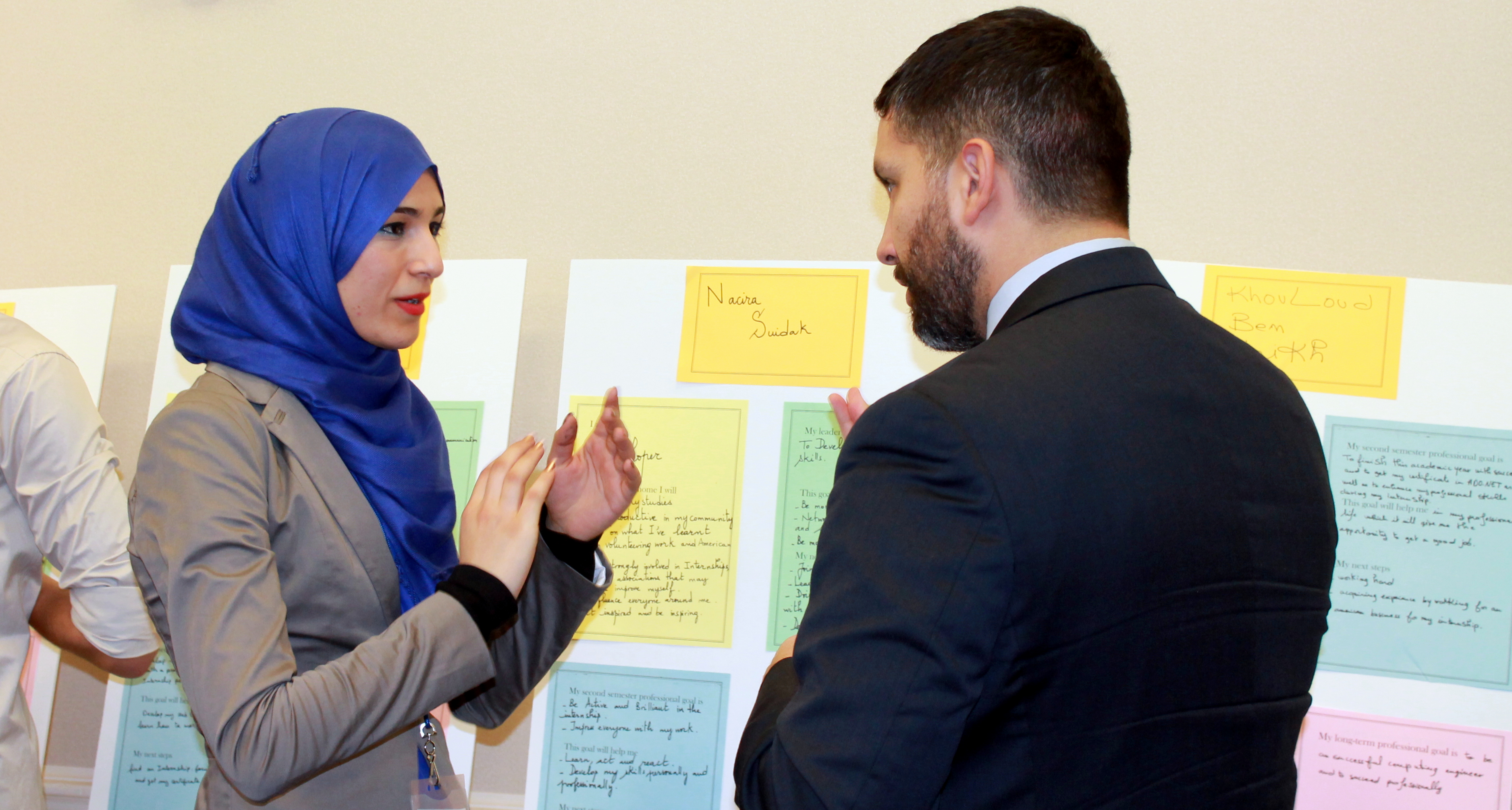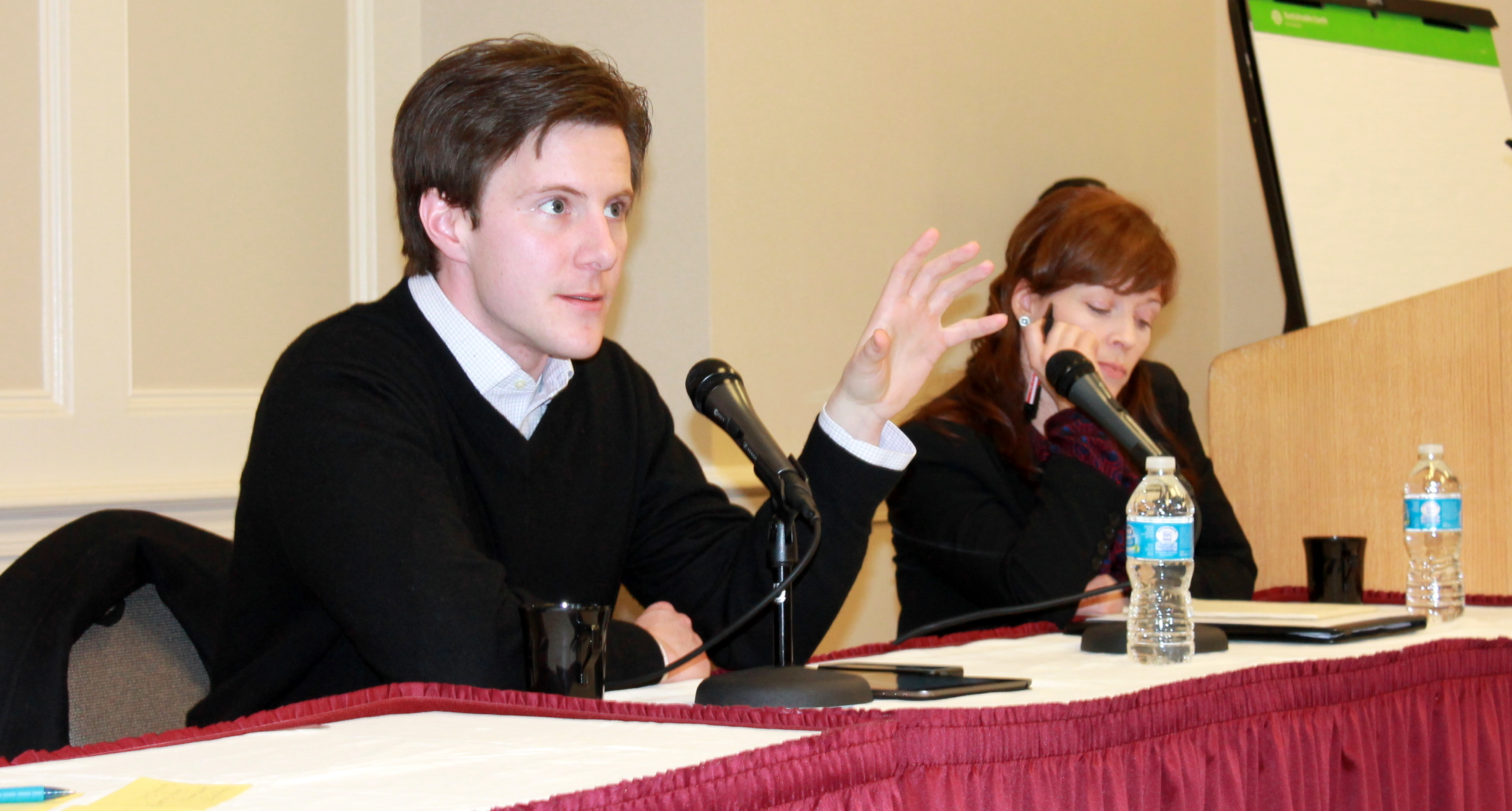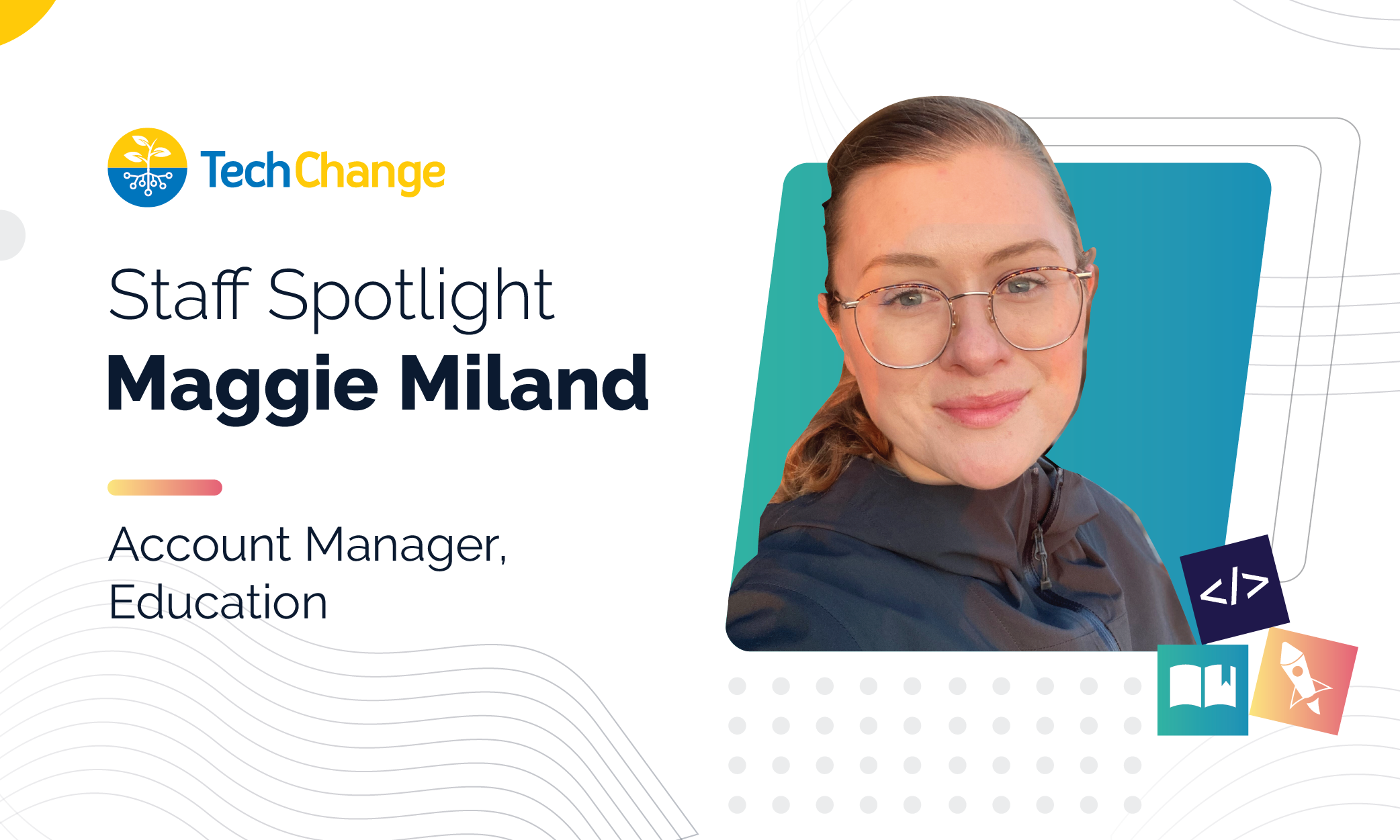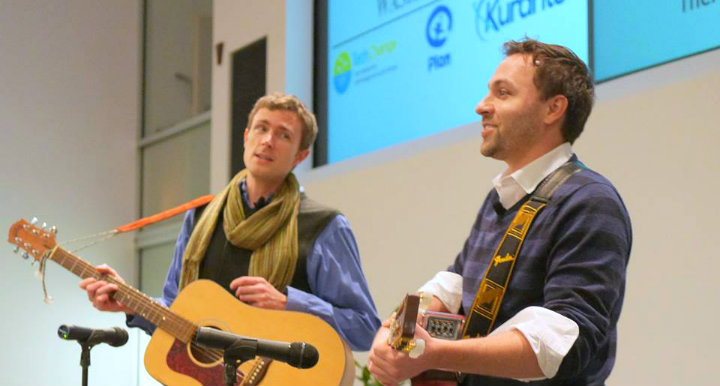Tech entrepreneurs of the world unite! Last Friday, TechChange was proud to present on a short panel for The Tunisia Community College Scholarship Program (TCCSP) at the 4-H Youth Conference Center in Chevy Chase, MD. The Thomas Jefferson Scholarship Program, TCCSP “builds the workforce capacity of a diverse group of Tunisian students in technical fields through US-based training and practical experience in their professional fields through academic study, community engagement activities, and internships.”
TechChange has participated in similar student programs with TechGirls for #JobShadow day and IREX’s Global UGRAD-Pakistan program, but we found this topic particularly urgent given the continuing youth unemployment crisis in Tunisia. However, while the specific panel topic was “Journeys to Global Citizenship and Professional Success,” but the best part of the event was listening to the students pitch their ideas and professional goals during a poster session on “My Professional Self-Portrait.”

While walking around and chatting with the students, three lessons stood out:
1) Combine tech, design, and entrepreneurship
There was one moment while walking around where I saw three “Professional Self-Portraits” next to each other. The first was for graphic design, the second for network engineers, and the third was for starting a small business for IT solutions.
2) Pitch your ideas, but listen more
Turns out the idea of starting a business wasn’t unique! During the panel, I asked the audience to raise their hand if they intended to start a business someday. About half of the hands went up. But more impressive than those starting a business were those who took time in the event to connect.
3) Networking is key
A funny thing happened when I started talking to the three students mentioned earlier — they started to listen and talk to one another. Given that successful startups often require two or three founders with synergistic–not overlapping–skill sets, this gives me hope that the relationships will continue after the students leave DC.
If some of these lessons seem familiar, well, they’re pretty much spot-on for what the industry professionals came up during #EdTech for the last Tech@State. Thanks again to IREX for hosting us last week — we’re proud to take part and excited to see where this program goes next!
Photo credit: Images taken and provided by IREX.




